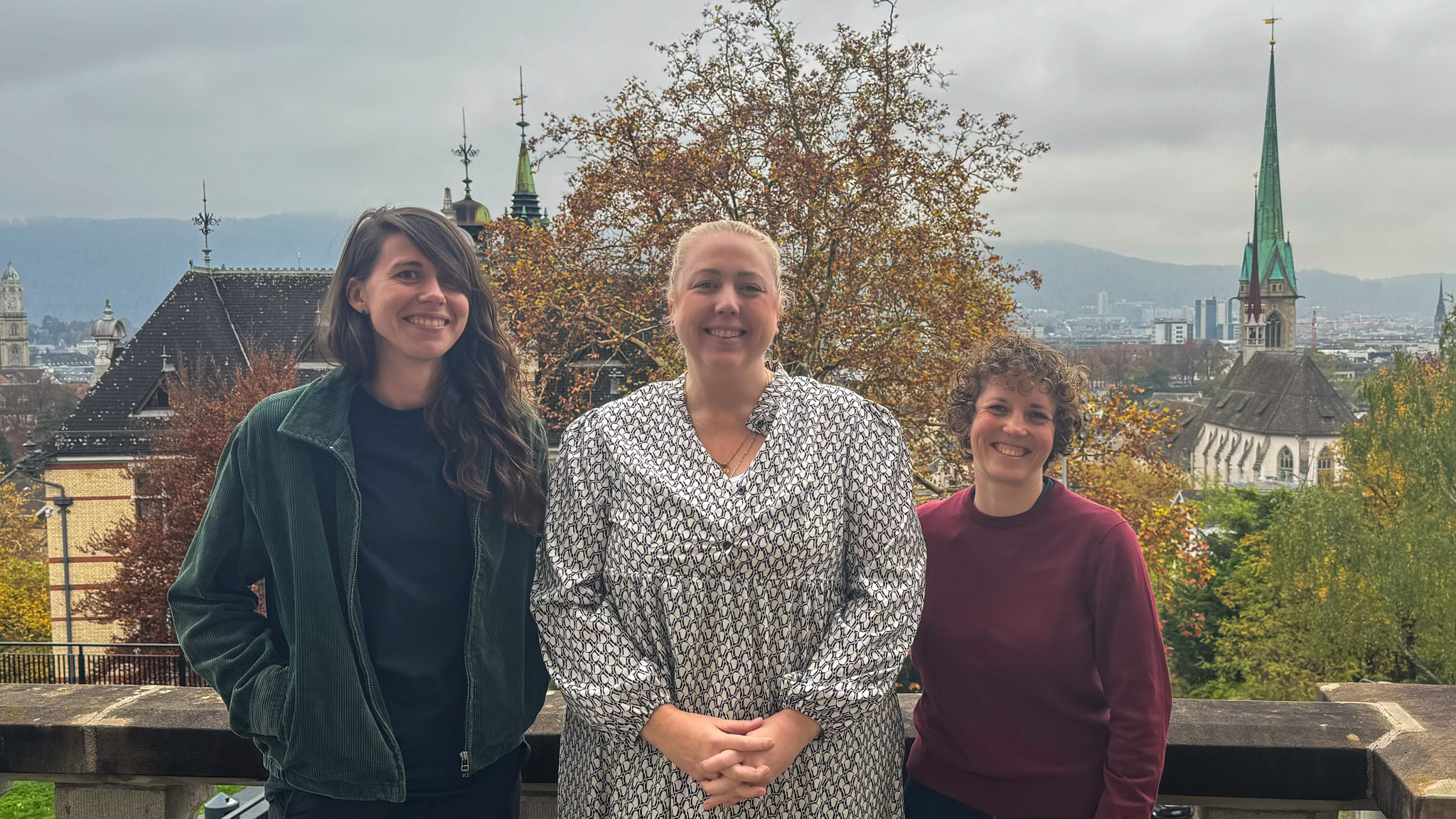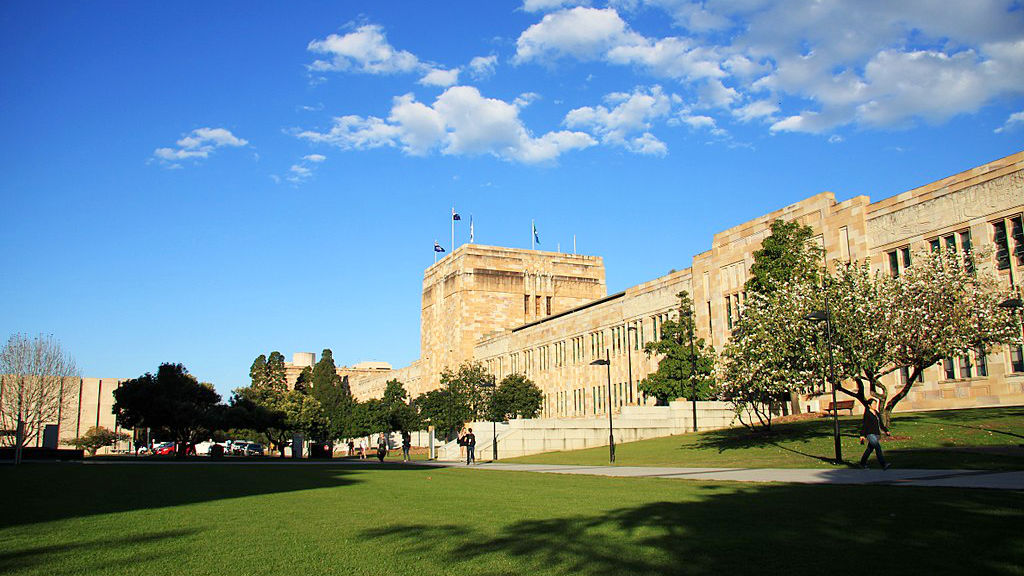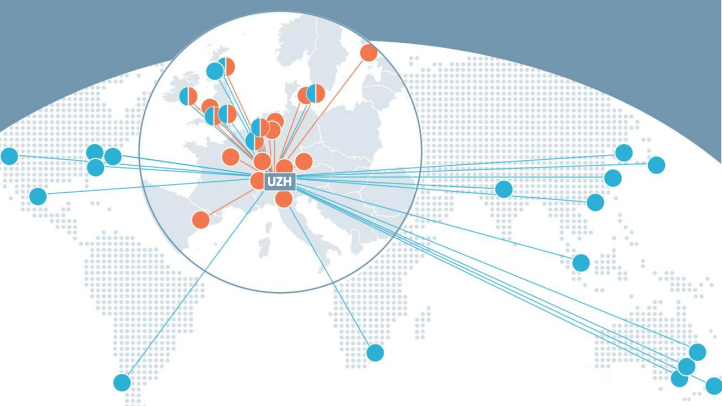Strategic Partnership with UQ in the Spotlight: Australian Ambassador Elizabeth Day Visits the University of Zurich
This week, the University of Zurich (UZH) welcomed Elizabeth Day, the Australian Ambassador to Switzerland and Liechtenstein, in a visit that highlighted the strong ties between Switzerland and Australia’s higher education landscape, championed by the strategic partnership between UZH and the University of Queensland (UQ). Ambassador Day's visit marks a continued commitment to cross-border cooperation in research and education.

UZH and UQ entered a strategic partnership in February 2021, building on a longstanding relationship between the two institutions. This partnership brings together expertise across a diverse range of research and teaching areas, including criminal law, psychology, biology, medicine, and more.
The centerpiece of the visit was a roundtable discussion with the Ambassador that reinforced common principles of a value-based society and the importance of academic freedom. On this shared basis, topics such as data exchange, funding landscapes, and the visibility of research between the two countries were discussed.
Swiss-Australian Academic Cooperation and Shared Vision
In his opening remarks, Michael Schaepman, President of UZH, emphasized the importance of the partnership, stating “International academic cooperation goes beyond concrete research output. It also means learning from each other’s cultural backgrounds. It allows us to change perspectives, experience other cultures, and contributes to our institutional diversity activities”.
Deborah Terry, Vice Chancellor at the Universitiy of Queensland, joined the visit for a virtual welcome remark and highlighted, “The collaborations between UZH and UQ have flourished since the establishment of the strategic partnership; UQ and UZH share not just a commitment to collaboration but also mutual interests across a wide range of areas".
Reflecting on the essential role of Swiss-Australian academic cooperation, Elizabeth Day emphasized that “in the face of unprecedented climatic challenges, massive technological change and heightend geostrategic challenges, people-to-people links will become more, not less, important. They can help to promote empathy, cultural understanding, and combat the increasing political polarization that we are encountering today”. She notes that "Switzerland is Australia’s 11th most significant research partner – thanks in no small part to the strong contributions of the University of Zurich and the University of Queensland”.
Many Success Stories Across UQ and UZH Collaboration
There are numerous examples of this Swiss-Australian academic cooperation at UZH, showcasing how combined expertise can tackle global challenges – some of them were presented to the Ambassador during her visit to Zurich:
Tabea Hässler and Léïla Eisner from the University of Zurich, together with their colleague Fiona Barlow from the University of Queensland, are examining how social and legal changes affect the experiences of discrimination and health outcomes for LGBTIQ+ individuals over time and across different subgroups. Their collaboration emerged from a shared commitment to maintaining accurate, globally relevant data on these issues. By combining their expertise, they have made significant steps in advancing LGBTIQ+ research worldwide.

Gian Ege (UZH) is addressing international organized crime, a complex issue that transcends borders, through closely collaborating with Andreas Schloenhardt (UQ) and students from both universities in various ways. For example, the seminar series on transnational organized crime, co-organized with the University of Queensland and further partners, provides an international platform to tackle this issue. These seminars offer UZH students the opportunity to connect with peers from Australia and engage with other stakeholders such as NGOs or embassies.
Moreover, Luregn Schlapbach (UZH) and Kristen Gibbons (UQ) jointly work together to improve outcomes for critically ill children. In doing so, their collaboration for example includes clinical trials and trial capacity building, multi-omics analyses, and machine learning for clinical risk prediction. Their work has also had significant policy impact, namely with the Swiss Sepsis National Action Plan, which benefited crucially from the UQ/Queensland Sepsis Collaborative and the Australian Sepsis Network.
In Healthy Longevity, Mike Martin (UZH) has been working together with Nancy Pachana and her team at UQ since 2020. They have worked together on a variety of collaborative projects, researching the diverse aspects of longevity and looking for innovative approaches to healthy aging around the world. In this area, UZH’s concentration on activity data analysis and participatory research, and UQ’s focus on Big Data and innovation management, complement each other’s expertise perfectly.
Another example of collaboration at an intra-university level is the Australian Swiss Academic and Innovation Network (ASAIN), a newly established network in which the University of Zurich has played an integral role with UZH professors John Mansfield and Martin Dusinberre being members of the steering board. ASAIN aims to foster closer bilateral research and innovation tie by facilitating meetings, sharing information about grants, providing mentoring opportunities, and supporting mobility. “The ASAIN is a great opportunity to approach challenges and opportunities more systematically across a huge array of topics”, says Daniel Gschwind, Honorary Consul of Switzerland in Brisbane, who attended the meeting virtually.
Strategic Partnership Continues to Grow in Substance
Ambassador Elizabeth Day’s visit provided a valuable forum to celebrate existing achievements and discuss future directions for Swiss-Australian academic collaboration. The visit once again underlined the value of the existing partnership between UQ and UZH, reaffirming both institutions’ commitment to impactful cross-border research.
Leslie Reinhard & Thurka Sinnathurai

